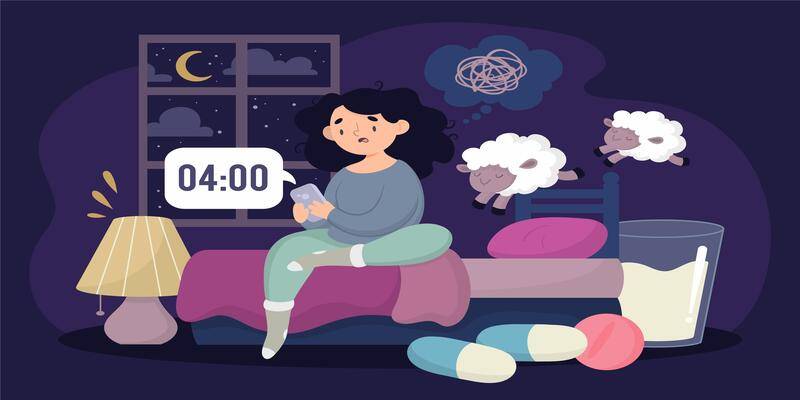How to handle different emotions?

Emotions are like a support system that guides you towards the actions you must take to reach your goals in life. Every emotion is trying to send you a message. If you ignore those messages, your emotions will blow up into a full-blown crisis. Let’s first understand different emotions and how we can handle them:
Fear
Fear has got different levels. Low-level emotion in fear is a concern, and high-level includes worry, anxiety, fright, and even terror. The message is simple: anticipating that something bad will happen, we need to either start preparing or be able to cope with the situation or do something to change it.
Solution: Contemplate what you were feeling fearful about and see what you must do to prepare yourself mentally. Figure out what actions you need to take to deal with the situation in the best possible way. Sometimes, we have already done all the preparation that we could do but we still sit in fear. Now that’s when you must use the antidote for fear: you must have faith.
Hurt
Feelings of hurt are usually generated by a sense of loss. The message hurt gives us is that we have an expectation that has not been met. Many a time, this feeling arises when we expect somebody to keep their word and they don’t, or you have feelings for someone, but another person is with someone else (even if you haven’t told that person about your feelings). We then feel a loss of trust or maybe a loss of intimacy with that person. That sense of loss is what creates the feeling of hurt.
Solution: Understand that in reality, you may not have lost anything. Maybe what you need to lose is a false perception that the person is trying to hurt you. It is a possibility that they don’t even realise the impact of their actions on your life. Take a moment and re-evaluate the situation. Ask yourself: Is there really a loss here? Or am I judging the situation too soon or harshly? Now, to get out of this feeling, communicate your feeling of loss to the person involved. Simply by clarifying what’s going on, you will find that hurt disappears in just a moment.
Anger
Angry emotions include everything from being mildly irritated to being resentful, furious, or enraged. The message through this emotion is that an important rule or standard that you hold for your life has been violated by someone or by you. However, the good thing is you can change this emotion in just a moment.
Solution: Realise that you may have misinterpreted the situation completely, and that your anger about this person breaking your rules may be based on the fact that they don’t know what’s most important to you. Understand that even if a person did violate one of your standards, your rules are not necessarily the ‘right’ rules, even though you feel very strongly about them. When we are angry, we ask ourselves some disempowering questions such as how can he/she do this? Why did they do that to me? And so on…
Rather than questions that won’t affect your life positively, ask yourself a more empowering question such as – In the long run, is it true that this person really cares about me? Interrupt the anger by asking yourself –
– What can I learn from this?
– How can I communicate the importance of the standards I hold for myself to that person in a way that causes them to want to help me and not violate my standards again in the future?
Impatience, boredom, unease, distress, etc
The message behind these emotions is that the way you are perceiving things is not right, or the actions you are taking are not producing the results you want to see.
Solution: When we feel these emotions, we tend to slump over the table, move with slouched shoulders, and breathe shallowly, but in order to deal with them, we need to change that state quickly either by shaking our body or having a quick mindful walk. You can also dance, sing, and listen to music. Once you are out of the paralyzed state, get clarity on what you actually want. Check what steps you have been taking and how you can modify them for a better outcome. Try a slightly different approach and see if you can change how you feel about the situation.
Frustration
Anytime we feel we are surrounded by roadblocks in our lives, where we are continuously putting out efforts but not receiving rewards, we tend to feel frustrated. The message of this emotion is an exciting signal, which means that your mind believes you can do better than you what you are doing right now. Frustration is a very positive sign. It means that the solution to your problem is within range, but what you’re currently doing is not working, and you need to change your approach in order to achieve your goal. It’s telling you to become more flexible.
Solution: Understand that frustration is actually your friend telling who is asking you to brainstorm new ways to get a result. Get some input on how to deal with the situation. Find a person who has experienced something similar before. Ask them for input on how you might produce your desired results more effectively. Get fascinated by what you can learn that can help you handle this challenge, not only today but in the future too.
Guilt
Guilt, Regret, and Remorse are emotions which human beings avoid the most in life. No doubt these are painful emotions, but it also serves an important message. It tells you that you have violated one of your own high standards, and you must do something immediately to ensure that you are not going to violate that standard again in the future.
Solution: Acknowledge that you have violated a critical standard you hold for yourself. Commit yourself to making sure that this behaviour will not be repeated in the future. Rehearse in your mind how, if you could live it again, you would deal with the same situation you feel guilty about in a way that is consistent and meets your high standards.
These were some important emotions where people get stuck. We have other emotions too, but an understanding of the above-mentioned will give you more strength to handle other emotions.






